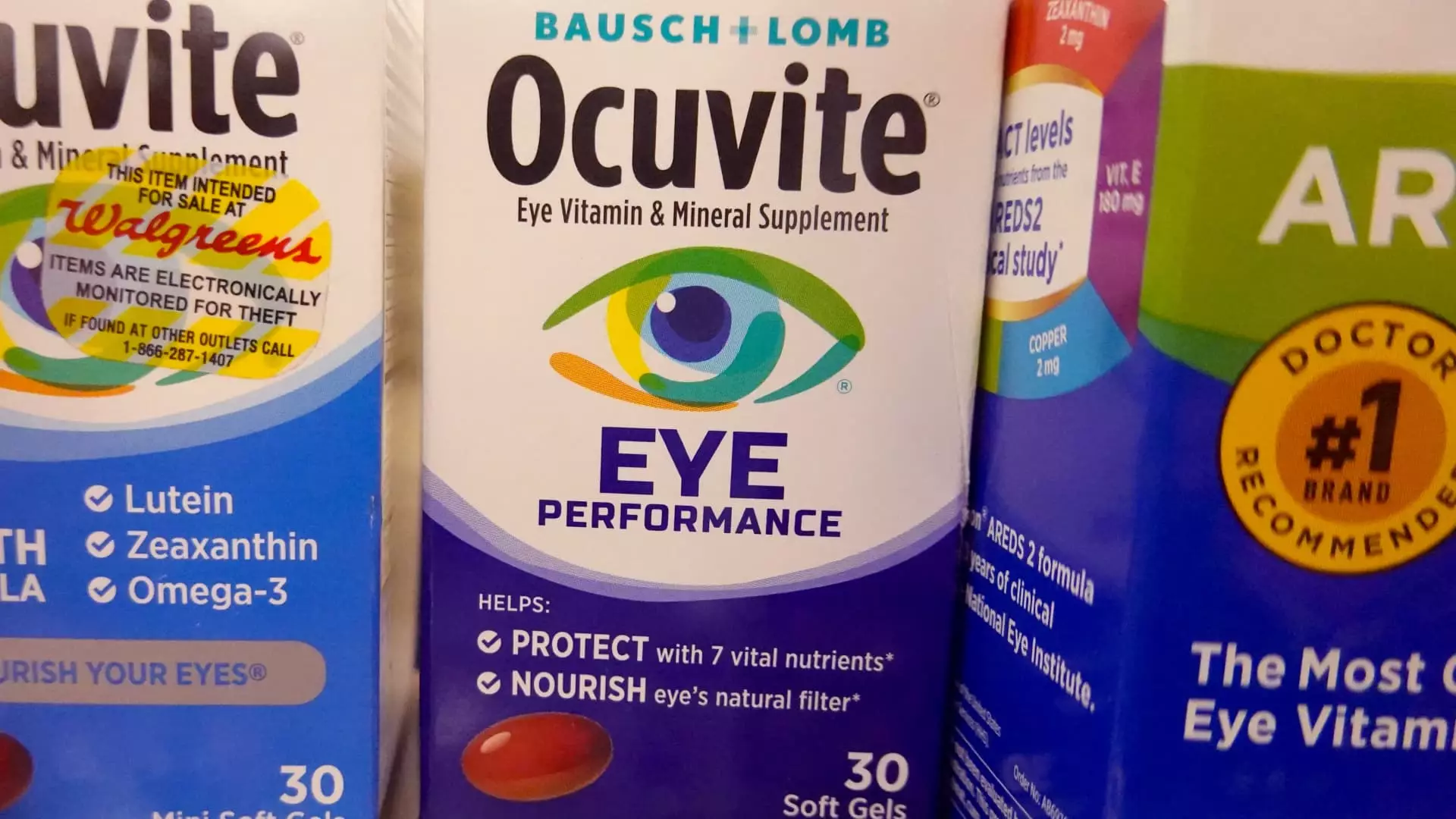Bausch Health Companies Inc., initially known as Valeant Pharmaceuticals, has positioned itself as a noteworthy contender in the global pharmaceutical arena. With its headquarters nestled in Canada, the company covers a broad spectrum of therapeutic areas, providing vital treatments in dermatology, gastroenterology, neurology, and ophthalmology. Bausch Health operates across five core divisions: Bausch + Lomb, Salix Pharmaceuticals, International Rx, Solta Medical, and Diversified Products. Of these, the Bausch + Lomb segment remains a flagship brand, particularly recognized for its innovations in eye care products.
The transformation from Valeant Pharmaceuticals to Bausch Health represented not only a rebranding effort but a necessary pivot for recovery from past controversies and public criticism regarding pricing strategies and business practices. This transition has allowed the company to restore some trust among stakeholders while navigating the complex waters of the pharmaceutical industry.
The involvement of influential activist investor Carl Icahn has brought to light significant strategic undertakings within Bausch Health. In February 2021, Icahn filed a 13D with the SEC, indicating his intentions to engage in discussions aimed at enhancing shareholder value. His actions sparked a series of changes, including an agreement that expanded the board’s size and the appointment of Icahn’s portfolio managers as directors. This move highlights a growing trend in corporate governance where activist investors seek to exert influence over company strategy, pushing for transparency and accountability.
Icahn’s presence on the board may instigate further transformations within Bausch Health, particularly as the company undergoes strategic reviews. The nuances of balancing shareholder interests against long-term investment strategies pose a challenge but also an opportunity for Bausch Health to capitalize on its assets effectively.
The spin-off of Bausch + Lomb in May 2022 created two independent entities, albeit with Bausch Health retaining a majority stake. This strategic separation aims to streamline operations while enhancing focus on each division’s growth potential and operational efficiency. By prioritizing Bausch + Lomb’s growth prospects while also addressing the financial complexities of Bausch Health, the management is positioned to derive substantial value from both entities.
However, the relationship between Bausch Health and its subsidiary has seen challenges. Bausch + Lomb faces a financial landscape marked by a burdensome debt load, whereas Bausch Health itself struggles with a consolidated debt of $20.4 billion. This level of indebtedness raises concerns regarding financial stability and limits flexibility in strategic decision-making moving forward.
Current assessments indicate that Bausch + Lomb’s enterprise value hovers around $10 billion, presenting complications due to its structural ties to Bausch Health and existing debt. Analysts speculate that selling control of Bausch + Lomb could unlock considerable value for shareholders, particularly given its projected earnings before interest, taxes, depreciation, and amortization (EBITDA) of $966 million for 2025. Comparisons with industry peers suggest that a strategic sale could result in a significantly higher valuation than the market currently reflects.
The looming expiration of patent protections for Salix’s star product, Xifaxan, adds a layer of precariousness to Bausch Health’s revenue streams. As 87% of Salix’s revenue depends on Xifaxan, analysts must grapple with the limitations posed by imminent patent cliffs, necessitating proactive strategies that either pivot focus to new products or bolster existing offerings.
With four hedge fund managers on Bausch Health’s board and an assemblage of directors experienced in driving corporate strategy, the company appears poised to explore bold initiatives that could redefine its trajectory. There is anticipation that strategic decisions will transpire with greater agility, potentially allowing Bausch Health to efficiently navigate the discomfort associated with large-scale asset sales.
While Bausch Health’s stock remains below its potential valuation, with projections indicating a possible price surge should current strategies succeed, market volatility and external economic factors continue to complicate its recovery journey. The unpredictability inherent in mergers and acquisitions, particularly in heavily regulated industries like pharmaceuticals, underscores the urgency for careful evaluation of each financial maneuver.
Bausch Health’s evolution is marked by a blend of strategic repositioning and external pressures. As the company endeavors to maximize shareholder value while addressing the significant financial burdens, its journey promises to be intricate yet potentially rewarding. The road ahead will likely require a delicate balancing act, but with adept leadership and strategic foresight, Bausch Health has the opportunity to stabilize and flourish in a competitive marketplace.

